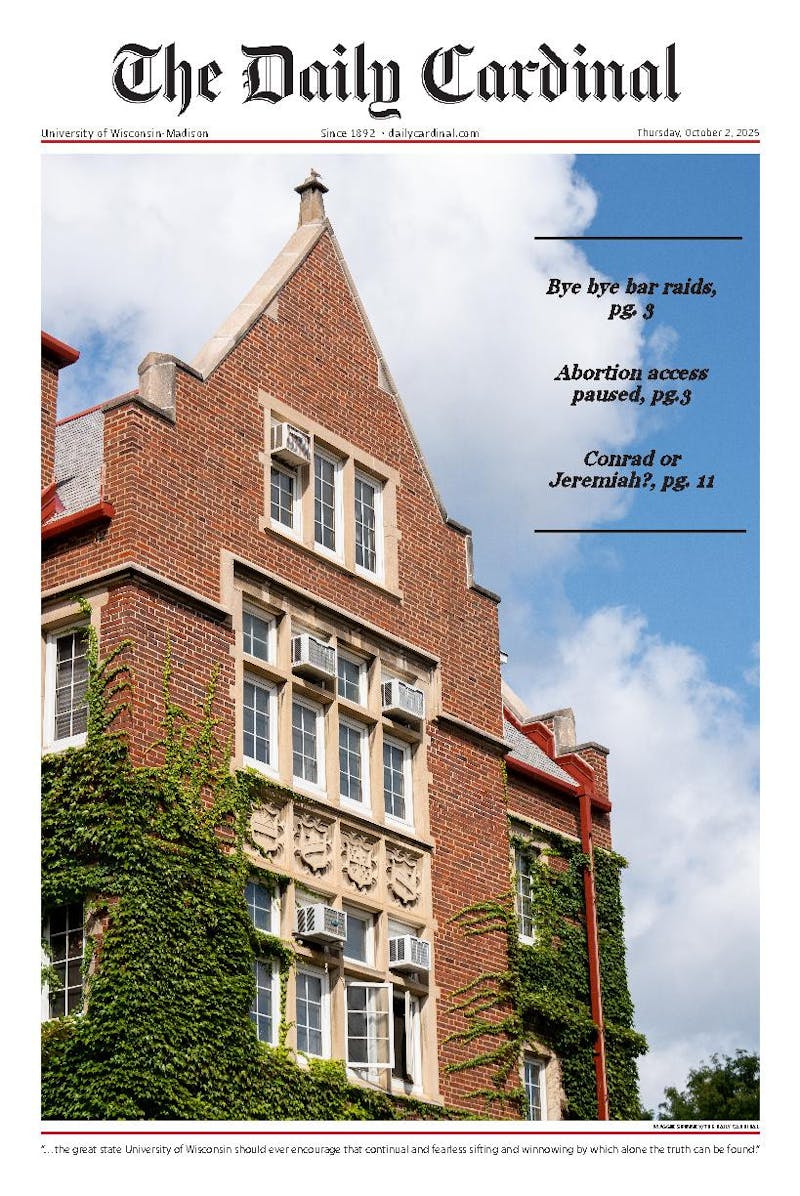Students discussed ways to address inclusivity disparities on campus Monday as part of UW-Madison’s second student forum about the results of the university’s first-ever campus climate survey.
Survey data — drawn from the 8,652 “representative” responses — revealed that while 81 percent of UW-Madison’s overall student population often feel welcome on campus, just 69 percent of LGBQ students, 67 percent of students with a disability, 65 percent of black students and 50 percent of trans or nonbinary students felt similarly.
Vice Provost for Diversity and Climate Patrick Sims and Dean of Students Lori Berquam fielded questions from approximately 30 students ranging from funding for multicultural group centers to how the university responds to issues of diversity.
One of the focal points of the forum was how resources and funding is allocated for multicultural projects and centers — efforts that help underrepresented students feel included. Sims said that while he thinks many of the ideas presented to him, such as the creation of new centers, should happen, there is only a certain amount of money that can be distributed.
He said that although the university could take the money it has and spread it out among the organizations asking for changes, this would not create sustainable solutions. Instead, Sims suggested finding donors as a solution to these funding issues.
“We are wanting to be solution-oriented and also [create] things that are sustainable,” Sims said. “The conversation we are trying to have is about, okay, maybe we need to find a donor.”
Sims said the university — a “world-class institution” — is treated by the state as just another state agency. According to Sims, Chancellor Rebecca Blank often has to deal with obstacles such as salary concerns and curriculum funding, and getting her attention on issues of diversity can be a challenge.
“All of these things have a ripple effect and impact our ability to engage and support you all,” Sims said. “It is not that we aren’t sharing the message, it’s the degree to which the Chancellor’s got x amount that she can pay attention to, and how do we make sure the things that she is paying attention to reflect the areas that we have to demonstrate influence and outcomes that I know you all want to see.”
Riley Tsang, a junior at UW-Madison, is part of a committee trying to establish an Asian Pacific Islander Desi American cultural center on campus. Tsang said a cultural center is important because APIDA-identifying students are not well represented and need places they feel they belong on campus.
Berquam said that both she and Sims are strong advocates for these type of centers, noting the creation of the Black Cultural Center. These type of institutions, however, take time and careful planning, she said.
“Unfortunately, it is not something that we just get to snap our fingers and it happens,” Berquam said. “It is a process. It takes time.”
For Tsang, Berquam’s response “sounds like what they’ve always said.”
According to Tsang, student activists graduate after “trying to survive four years in a racially hostile campus,” and then the next generation of students have to start from scratch.
“Our university always delays and makes excuses for doing something later,” he said. “While I appreciate what they say, I will be convinced when they commit finances and staff to these initiatives.”
Sims noted it often seems as though organizations have to compete for resources, adding space is “a premium on this campus.” He encouraged students to keep bringing ideas forward on how to address disparities. Once students present ideas, he can communicate with other officials, like Blank, to bring them to fruition.
“It’s constantly reminding and it’s constantly putting those ideas in front of leadership… It’s in concert with your efforts as students saying, ‘hey, we want this,’” Sims said. “Keep bringing forth solutions that [faculty] can consider.”
The forum — put on by Division of Student Life and the Department of Diversity, Equity & Educational Achievement — is the second university-held student forum since the results came out in November 2017.
Sims told The Daily Cardinal that these public events are part of the university’s attempt to be transparent and ensure students understand the data is important.
“Part of our intention was to not just have this data sitting on the shelf,” Sims said. “We really wanted to get it out to engage with it and show what the data said.”






